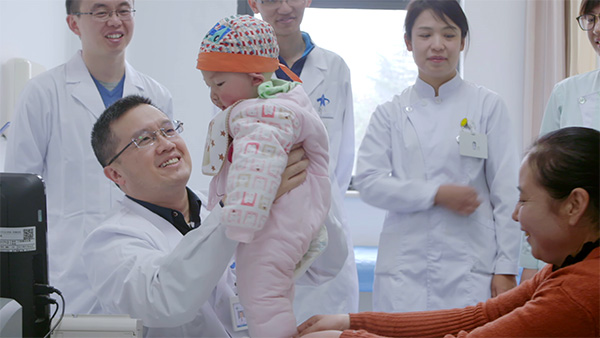Unveiling medical mysteries


A new four-part TV documentary series looks at the lives of doctors, Wang Kaihao reports.
What are doctors really like when you peel off the white gowns and masks? There is no script for The Doctors, a four-part documentary on Channel 4 of China Central Television that premiered on Monday, but reality is touching enough.
In the series created by Health News, a newspaper affiliated with the National Health Commission, the lens focuses on the work of medical practitioners from six hospitals in provincial capitals around China - Nanjing, Jiangsu province; Xi'an, Shaanxi province; Hangzhou, Zhejiang province; Zhengzhou, Henan province; Hefei, Anhui province; and Chengdu, Sichuan province.
Hu Yali, a gynecologist who recently retired as deputy director of the Nanjing Drum Tower Hospital after 30 years, still goes to the hospital every day and serves as a consultant.
"As long as I am still useful, I will go there," she says.
Wang Dongjin, a cardiologist from the same hospital, has long suffered from spondylosis - the degeneration of the vertebral column - but he still visits local communities every weekend to do voluntary medical service.
"I am luckier than other doctors," he says. "The hospital provides me with a massage chair to take a rest. Not everyone has such a privilege."
According to Zhang Jianzhen, director of The Doctors, which took two years to make, the program aims to improve public understanding of doctors' work.
Statistics from the National Health Commission show that over 20 million people go to hospitals every day in China.
"This is a unique job, which has a direct link with people's lives," says Zhang after a recent preview of the documentary in Beijing.
"People rely on doctors. But they know very little about them because there isn't enough public education about medical jobs in China."
Zhu Liangfu, a neurologist from Henan Provincial People's Hospital, recalls that when an elderly man died of a stroke in spite of his efforts, the patient's wife angrily shouted at him, saying: "I want to tear you to pieces!"
"But later she calmed down and said to me: 'I am feeling uncomfortable. Can you check my heart?'," Zhu says.




































